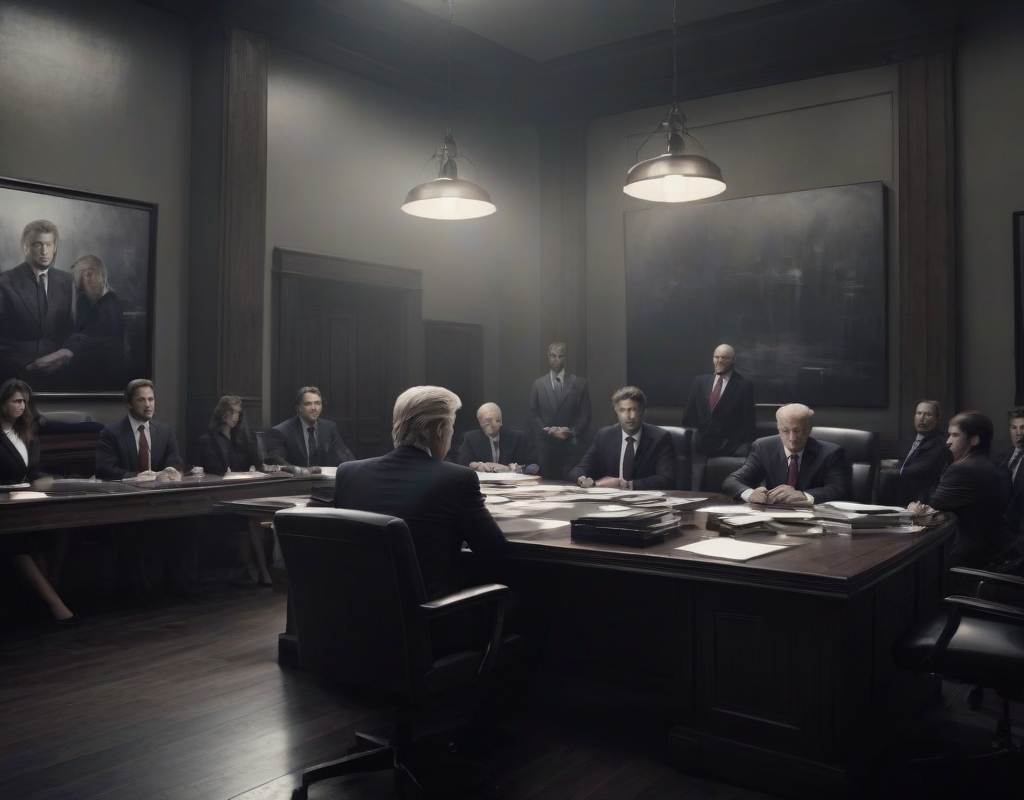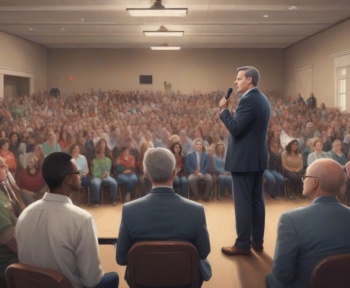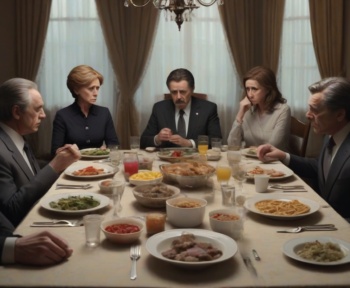In recent developments, Ali Abbasi, the director of the biographical film “The Apprentice,” has surprisingly welcomed criticism from Donald Trump, viewing it as beneficial for the film’s exposure and success. Despite Trump’s severe disapproval shared on his Truth Social platform, where he labeled the movie as “fake and classless,” among other derogatory descriptions, Abbasi remains unaffected by the harsh comments.
During a live broadcast interview, Abbasi expressed his appreciation for the unexpected attention Trump’s disapproval has brought to the film. He optimistically acknowledged that this type of publicity has actually garnered more interest and viewership for the movie. Abbasi said, “Thanks to him, we get better publicity and we get more people to come and watch it now. So, I’m grateful.”
The box office numbers reflect a modest opening weekend gross of just over $1.5 million, but the surrounding controversy may be a driving factor in attracting a broader audience. In response to questions about whether he would consider hosting a private screening for Trump, Abbasi appeared open to the idea, suggesting it could provide mutual enjoyment and fulfillment for both parties, enhancing their understanding and possibly broadening perspectives.
Since its release, “The Apprentice” has sparked significant debate, criticized by some as a biased and unfair depiction of Trump’s tenure on the reality TV show. This criticism has, paradoxically, increased public interest, with more individuals eager to view the film either out of curiosity or to comprehend the basis of Trump’s strong objections.
The ensuing controversy has also spilled over into the political arena, potentially impacting Trump’s campaign for the 2024 presidential election. While his steadfast supporters might dismiss the film as mere partisan criticism, it has undeniably drawn more attention to Trump, though it remains unclear if this will affect voter behavior.
Public reaction to Trump’s critique of the film has been polarized, with some defending his right to express his viewpoints, while others criticize his perceived oversensitivity. Meanwhile, Abbasi maintains a pragmatic stance, choosing to focus on the positive outcomes of the increased media attention rather than dwelling on the negative feedback.
Despite the ongoing controversy, Abbasi remains dedicated to his project and continues to engage with the audience about the film’s production and underlying themes. Whether Trump will accept Abbasi’s invitation for a private screening is uncertain, but Abbasi’s resolve to share his artistic vision remains firm.
“The Apprentice” film has added a layer to the cultural footprint of the original TV show, known for its high-stakes drama and notable participants. Although the film has not received universal praise, it attempts to capture and offer a distinct interpretation of Trump’s experience on the series.
Ultimately, Ali Abbasi’s strategic handling of Donald Trump’s critique highlights a clever approach to film promotion, transforming potential negative backlash into a catalyst for greater public interest and discussion. As the conversation surrounding “The Apprentice” continues to evolve, it serves as a case study in how publicity, regardless of its nature, can significantly influence the trajectory of entertainment projects. Abbasi’s response to the criticism not only keeps the film in public discourse but also underscores his commitment to his creative expression, regardless of the challenges encountered.




